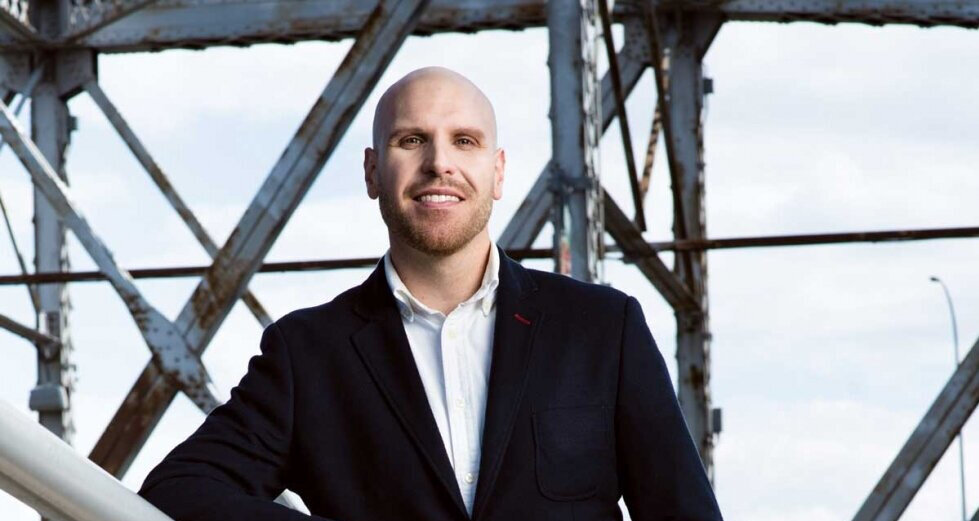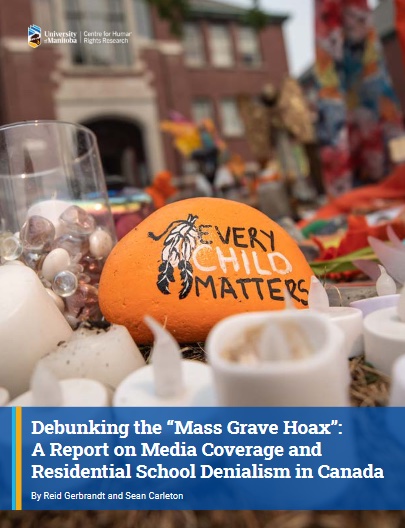
Sean Carleton helps put truth before reconciliation
Sean Carleton helps put truth before reconciliation
Visiting St John’s College fellow shares his residential school research across Canada
Dr. Sean Carleton, a visiting St John’s College fellow, settler historian, and assistant professor in history and Indigenous studies, uses his teaching, research, and service to help put truth before reconciliation.
Carleton’s work, in various ways, aims to raise awareness about Indian Residential School history and create opportunities for other non-Indigenous people to play roles in reconciliation efforts.
In the last year, Carleton has actively contributed to important reconciliation work on and off campus. As part of the National Day for Truth and Reconciliation in September, he was part of the team that installed a Heart Garden in the quad, featuring messages of reconciliation and inviting the campus community to consider ways they can take action to support reconciliation efforts. Additionally, He gave a talk about his research on what is known as residential school denialism, or the attempt by some to twist, misrepresent, or downplay truths about residential schooling to protect the colonial status quo.
Related to denialism, in October, Carleton and UM graduate student Reid Gerbrandt published a new report, supported by the Centre for Human Rights Research at UManitoba, debunking the “mass grave hoax” theory. This theory, promoted mostly on the far-right, holds that there is a conspiracy by mainstream media, First Nations, and the government to misreport potential unmarked graves at former residential school sites as “mass graves.” In October, Carleton and Gerbrandt’s report was also presented at St John’s College Soup and Bread event, where they shared their research findings.

Outside of his research, Sean is engaged in the community, supporting various Indigenous Nations with their efforts related to reckoning with residential school knowledge and trauma. He is the Historical Consultant for the Squamish Nation’s Yúusnew̓as project, looking into the history and legacy of the St. Paul’s Indian Residential School in North Vancouver, British Columbia. Carleton grew up near the school but “never learned” about residential schooling and how it negatively affected his Squamish neighbours. Volunteering his labour to help the Squamish Nation understand the experience and ongoing legacy of the school is just one way that Carleton is demonstrating reconciliation leadership.
In February, Carleton was invited by members of the Tla’amin Nation and The Names Matters to speak in gathet, or the City of Powell River, in British Columbia, on the history and legacy of Israel Wood Powell. Powell, as Carleton’s recent book Lessons in Legitimacyreveals, was a pivotal figure in helping day and residential schools targeting Indigenous children take root on the West Coast. Carleton’s talk was based on a new article he wrote on Powell and his relationship to schooling and settler colonialism in British Columbia.
Finally, Carleton was invited to be a keynote speaker at the National Advisory Committee on Residential Schools Missing Children and Unmarked Burials in Regina, Saskatchewan, March 5-7. This gathering brings Survivors, researchers, and Indigenous leaders together to support the ongoing work to understand the whole truth about residential schooling and its legacy.
Carleton was able to share some of his experience working as part of the Yúusnew̓as research team, and his talk was about the need to understand and confront residential school denialism as part of the work of putting truth before reconciliation and facilitating healing and justice for the future.
To learn more about Sean’s work, visit his profile.






